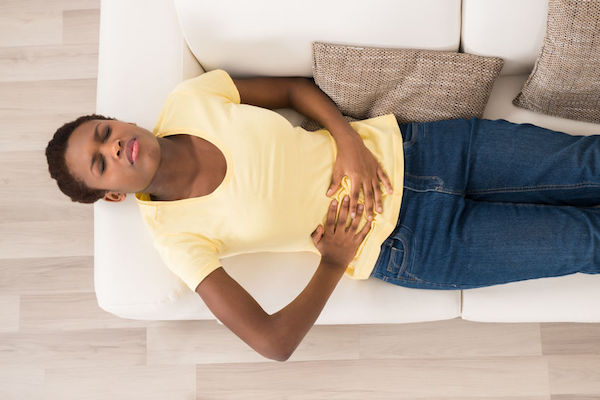Gastroenteritis – what most of us commonly refer to as a stomach bug or “gastro” – is a condition characterised by inflammation of the stomach and the small intestine.

It is a common gastrointestinal illness in which the stomach and intestines become irritated. The most common causes of gastroenteritis are:
- Viruses, particularly the norovirus, which is responsible for most gastroenteritis cases in adults and the rotavirus, the most common cause of the condition in children
- Bacteria, such as E. coli, salmonella and campylobacter.
Gastroenteritis is spread via person-to-person contact with infected individuals and by contaminated food, water or personal objects.
What are its symptoms?
Gastroenteritis symptoms and signs include:
- Vomiting and nausea
- Watery diarrhoea
- Abdominal cramping
- Mild fever
- Muscle pain and headache may be symptoms too, particularly of viral gastroenteritis
- Bloody stool may be present in some cases of bacterial gastroenteritis
- Dehydration, due to fluids lost through vomiting and diarrhoea. This may present as muscular weakness, light-headedness, decreased urinary output, dry mouth and increased thirst. Dehydration can be life threatening in infants and children, so be sure to seek medical assistance if needs be.
How is it diagnosed?
Gastroenteritis can usually be diagnosed in a consultation with a GP, based on the signs and symptoms with which the condition presents. It’s uncommon for further tests to be carried out, as gastroenteritis is a self-limiting condition, but in some cases a stool test may be carried out in order to determine the causative organism.
What are your treatment options?
Gastroenteritis treatment is usually focused on keeping the infected person hydrated, as the disease itself is self-limiting and in most cases clears up after a few days without any specific medical intervention. Oral rehydration solutions may be advised by your healthcare provide or, in more severe cases, intravenous rehydration in hospital.
Antiemetics, a type of drug that reduces nausea and vomiting, and antimotility medications for the symptomatic treatment of diarrhoea may be employed but in most cases bed rest, plenty of fluids and bland foods while your stomach settles should be sufficient.
Can it be prevented?
As it is often passed from one person to another, one of the mainstays of gastroenteritis prevention is good personal hygiene. Studies indicate that people frequently and thoroughly washing their hands can decrease rates of gastroenteritis by almost a third.
Where possible, keep your distance from those currently infected.
It’s also worthwhile to note that vaccination against the rotavirus, the most common cause of gastroenteritis in children under the age of five years old, is given as part of South African Department of Health’s Expanded Programme of Immunization. It’s important to ensure that your children are always up to date with their scheduled vaccinations.
Speak to your Clicks pharmacist about vaccinations and the best treatment for gastro.
IMAGE CREDIT: 123rf.com
